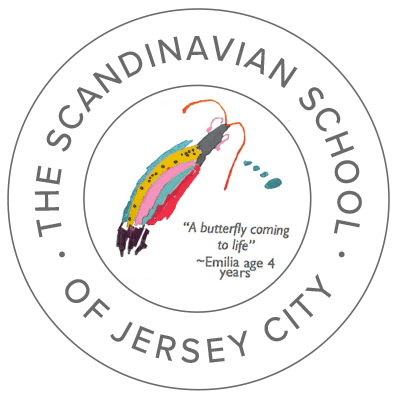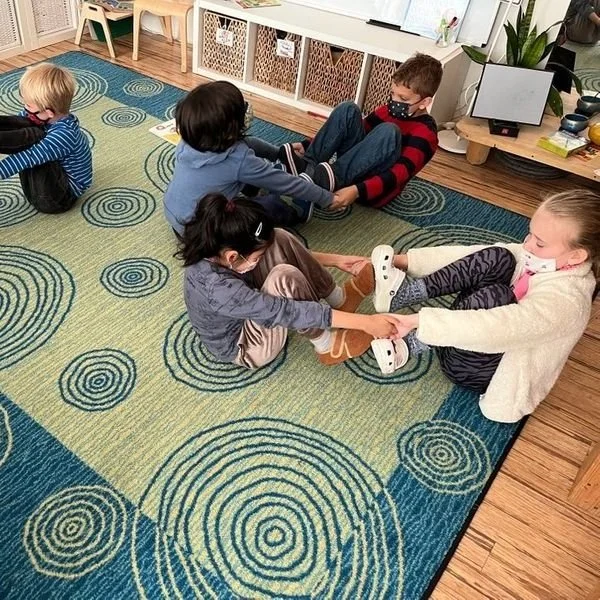Elementary School
We offer a 1st-6th grade program that honors the multiple intelligences and languages of the child through project-based learning.
About the Elementary Program
Traditional academics are reimagined
We offer a 1-6th grade program that honors the multiple intelligences and languages of the child through project-based learning. Traditional academics are reimagined through multi-sensory explorations that value and encourage a child’s natural sense of wonder. Children will explore literacy and numeracy through authentic, transdisciplinary experiences. This work will include research, reflection, story-telling, journaling, experiments, games, art, and nature study.
Our curriculum is standards-based and designed to help learners meet grade level goals.
Assessment
Assessment is an ongoing process that informs a teacher’s understanding of how learning should take shape in the classroom. After developing an understanding of what skills the children have mastered, we are able to design lessons tailored to their needs and learning styles. We utilize informal, observational, and anecdotal modes of assessment to track a child’s successes and areas where they need more opportunities for learning. Throughout this process, we encourage the children to reflect on their own learning and recognize their progress. This lays a growth mindset foundation that is essential for developing a lifelong love of learning.
Examples? So what does this look like?
-A third grade student is reading a book about the Lenape. She participates in a literature discussion at a small group table. The group compares and contrasts the book with another they read earlier in the year. Students then create a venn diagram as a group. (Reading Comprehension, Speaking & Listening, Shared Writing)
-A small group of second and third grade students are working with fraction blocks to create an art piece. Once their art piece is finished, they work together to write equations representative of the fractions in the piece. (Math Application, Project Based Learning)
-A group of first grade students is working on a long vowels unit. Together they roll clay into snakes and make words that contain long vowels. Later, they use some of these words in their journal sentences. (Phonics Application, Independent Writing)
-First grade students research habitats and homes of animals. They discuss how their homes meet their needs in relation to animal homes. Students create a diagram of their own home, and then create a diagram of an animal habitat they learned about (Science, Reading Comprehension)
Topics of studies will remain grounded in the school’s five pillars
Children will see their interests reflected in the learning by formulating individualized and collaborative research questions within the topics we explore. In doing so, we will give children the opportunity to think critically in a way that is meaningful to them as well as finding tools for collaborative processes. The topics of studies will remain grounded in the school’s pillars of Mindfulness, Eco-Sustainability, Social Justice, Image of the Child, and Outdoors, exploring and deepening connections with the self, each other, our community, and the world at large.
Utilizing their community as a classroom
We view learning as a journey taken together, with our families as the first teacher of the child, our teachers as the facilitators of learning and collaborators of our children while at school - the second, and our collective environment as the third teacher, interchangeable between home, classroom, outdoors, and the world at large.
In true Scandi tradition, our students will utilize their community as a classroom, taking the school’s bus to local green spaces.
-
At The Scandinavian School we understand and respect that reading and writing skills do not always develop linearly and that each child learns best at their own pace. We provide a variety of authentic opportunities to explore language and literacy.
Teachers reflect with their students and identify areas of growth over time and let students build on their strengths as they encounter challenges, celebrate milestones, and build a rich, collective learning path together throughout the school year.
-
Understanding and analyzing stories is a crucial element to evolving our skills as prominent storytellers. At Scandi school we are always in the process of deconstructing stories, critically thinking about all of their many elements.
Individualized guided reading groups, repeated read-out louds, sight words games are used to support the children in becoming confident and avid readers. Teachers utilize a variety of resources to teach phonics, decoding, and comprehension skills, documenting and reflecting on each child’s individual learning. The children reflect on their process, set personalized and group goals, actively inspiring and supporting one another.
-
The stories we share bring about meaning, purpose, and a sense of belonging. We believe children are gifted storytellers from the start - observing, imagining, and reflecting on the world with a unique and valued perspective. As soon as they become part of our school, each child’s personal stories become a vital part of our collective. Each year the children are given a wide variety of tools to support their always-evolving individual storytelling journey.
Following a writer’s workshop model we offer a multitude of opportunities, materials, and strategies for our young writers to develop their writing, editing, and sharing of their stories. As we create story maps, write drafts, revise our writing one-on-one with a teacher, and share our process with one another, children explore personal reflective, informational, and creative writing styles.
-
We are connected to a path of inquiry, analysis and multifaceted learning here at Scandi. Asking questions, sharing ideas, hands-on explorations, acquiring new knowledge, and connecting all our experiences is what lays a deep foundation for lifelong love of learning.
With both indoors and outdoors as our mathematics classroom, we utilize manipulatives to help us develop number sense and problem solving strategies. We provide a wide range of opportunities for our children to gain a deep understanding of mathematical concepts and apply their knowledge throughout their daily activities. Together we build addition and subtraction fluency, explore units of measurement and time, and discover multi-dimensional shapes.
-
Creative thinking and self-expression are vital to who we are. The culture of the atelier is woven into all aspects of our collective experience.
Creative languages like mark making, design, aesthetics, observation, building, deconstructing, and creating meaning anew, are explored through focused time with the school's atelierista. Together we learn various artistic methods and techniques, like drawing, printmaking, color theory, collage, sculpture, design, woodworking, fiber arts and others. We explore complex art materials and analyze artistic processes of important artists.
Each class has their own in-class atelier where the children get to express themselves and build upon their ideas using 100 languages. Throughout the day we get to connect all these experiences with other means of expression and build a strong, multisensorial interaction with the world.
Visit us
We invite prospective parents to get a sense of the Scandi School experience through in-person tours of the school, virtual info sessions and virtual classroom tours.







